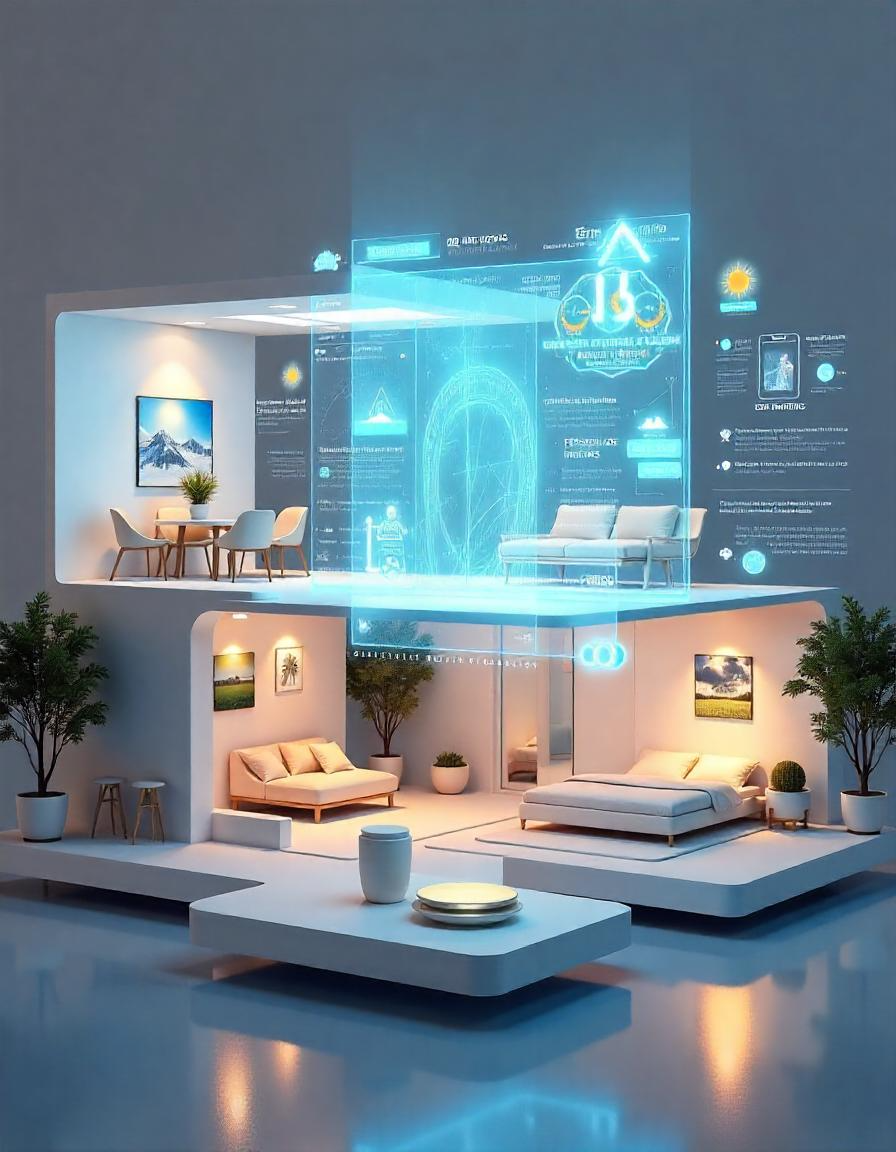
Sitting in the year 2025, imagining the day-to-day life activities of ten years ahead becomes really interesting. Getting an idea about the things that have happened over the last decade provides a glimpse of what will happen.
Consider the way you are reading this now, maybe on a smartphone, laptop or tablet. In 2035, these gadgets might appear as ancient as flip phones do today. It is likely that our digital society will softly cocoon us, as reality could be augmented with features as simple as wearing spectacles powered by the latest tech.
This is a given that lifestyles will transform. The smart home feature that seems so awkwardly clumsy right now will be the new norm in 2035. Imagine this scenario: after a long day, finally arriving at an already adjusted home. Everything is set to suit your requirements, from air temperature to mood lighting, and even routine friendly chores being executed. Most likely, your fridge will take the initiative to purchase groceries on your behalf without you even being cognizant of the commodities needed.
Work life will also be very different. We are witnessing only the beginning of the Unified Remote Work Revolution right now, and it will be in full force by 2035. An average office space will not exist anymore, and it is hard to envision an office without walls. The contemporary office will be so detailed, that working with a person on the opposite side of the globe will feel as real as having them next to you.
Transportation is undergoing a seismic shift. Pretty soon, electric vehicles will be the expected norm rather than just a choice. Charging stations, are going to be as frequent as gas stations currently are. Automated vehicles will take care of most of our daily drives, meaning the surges in traffic and the endless search for parking spots will soon be a thing of the past.
Our cities will be more intelligent, and much more ecologically-friendly. Vertical gardens will not just be artistic features within the city but an essential aspect of urban agricultural design. Almost every building exposed to sunlight will have the addition of solar panels, meaning that the air in our cities will be much cleaner than they have been in the last few centuries.
Health care will not just be focused on treating the illness, but also on preventing it. Wearable technology will exceed just step counting, and instead will allow health issues to be detected days or even weeks before any symptoms show. Your bathroom mirror will be capable of scanning your health while washing your face, and if anything looks abnormal AI enabled health assistants will make sure to reach out and notify you.
The classroom won’t be able to act as a prison for education anymore. Artificial Intelligence powered educators will customize classes for everyone according to their preferred learning method and speed. Difficult scientific principles will be taught with the help of engaging simulations and children will learn about history by virtually walking around Rome.
However, there is one thing that will always remain the same: our fundamental human necessities. We will always want to connect with other people and have authentic relationships and experiences. The only difference is that technology will enable us to maintain those relationships regardless of how far apart people are.
By far, the most significant shift will probably be in how we view sustainability. By 2035, sustainability will not be an option; it will be a way of living. What is being purchased, and the energy that is being used, will need to be considered for the damage done to the environment.
The concept of money will change too. Currency will be typically digital, meaning that banks will become as useless as using checks these days. AI will be responsible for real time changes to an individual's spending habits and investment strategies, making it effortless to control the individual’s money.
Current forms of social media will become so much a part of our life experience that it loses its originality. Instead of endlessly scrolling on their phones, people will be able to holographically call family and friends, creating the illusion of proximity.
Change will never be slow, and indeed one fact is true, it will only pick up from here. What looks odd today will seem normal a decade from now. But there's nothing to be anxious about, humanity tends to be flexible. While we already have an understanding of using smartphones and social media, we will learn how to efficiently utilize whatever technology is waiting ahead for us.
The year 2035 will not be the single, magical moment where technology has robots and machines doing everything for us. Quite the opposite, it will be a world where technology becomes imperceptibly helpful. It is about trying to find an equilibrium so that as we progress with technology, humanity attempts to take advantage of these advancements, but not allow the advancements to overpower us.
As we move to 2035, the best thing we can do for ourselves is remain inquisitive, flexible and concerned about what is valuable; relationships, health, and our inputs in the world. The things that we have been thinking to achieve are not very far off, although the journey there is going to be difficult.
Always remember, the future is not something that can be predicted. The actions that we take now is what dictates the future. What are you most interested to see change in 2035?
Posted Using INLEO